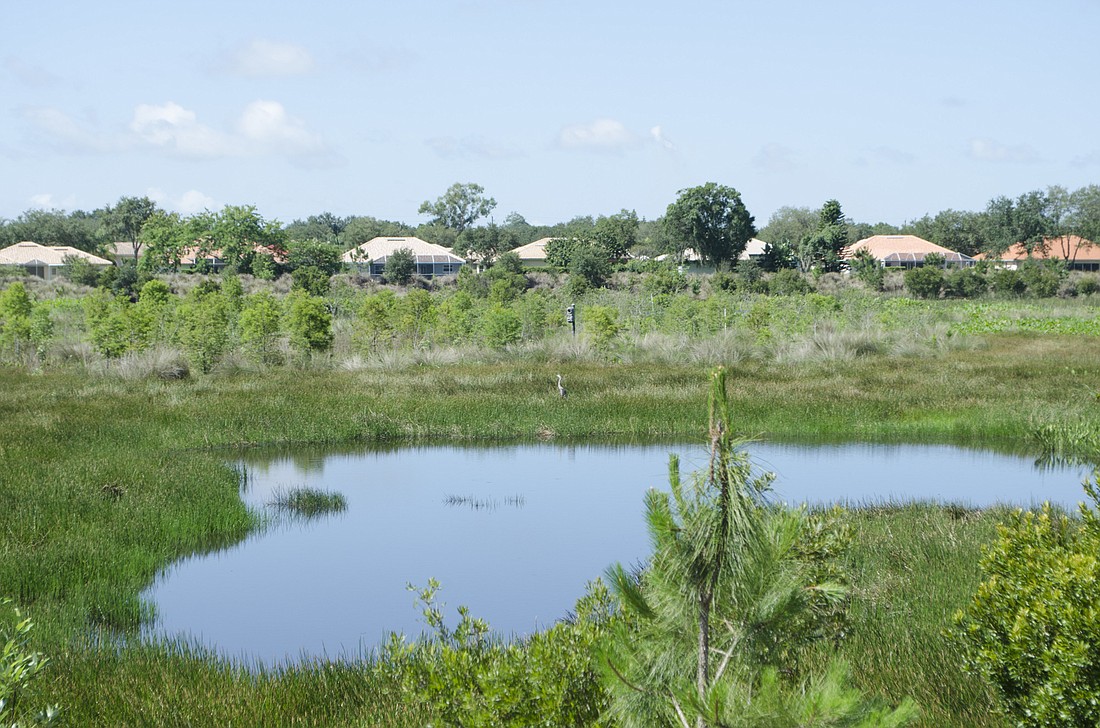- October 8, 2025
-
-
Loading

Loading

Jim Gabbert said he was surprised when the Sarasota County Commission voted down his proposed recycling facility for building and demolition materials on land just outside the Celery Fields nature park.
Not because he was unaware of public opposition as he moved through the process of buying the 11 acres from the county for $1.8 million. For months, critics circulated petitions, held protests and posted on social media against his facility.
They argued it was bad for the environment, the quality of life for nearby residents and their property values.
Gabbert was still optimistic, he said, because the county was supportive of his plan for the land at the intersection of Apex Road and Palmer Boulevard.
“It’s almost cruel — to advance a property, have a buyer and have him come here … then to sit here and deny the exception,” County Commission Vice Chair Nancy Detert acknowledged at the public hearing about the facility.
“It was a little bit of a surprise to me because I thought they wanted to sell the land,” Gabbert said.
“They offered to sell it, offered to rezone it and then they changed their minds.”
This was the second time Gabbert tried to build a recycling facility in that area. In 2015, he went through the same process for a piece of land on Cattlemen Road, north of Palmer.
In that case, businesses in the area opposed the facility, and he withdrew the application after the Planning Commission recommended the County Commission reject it. The overwhelming discussion, he said, was that the facility should be east of the interstate and away from retail.
“People like to talk about recycling, but nobody wants it … They want material to just magically go away."
With this new piece of land, he thought he had it. But now that his plan for a recycling facility was denied, Gabbert won’t be purchasing the land.
“I’m not going to purchase it because I can’t use it,” he said. “I’m not in the business to fight.”
Gabbert said he might look farther east for a place to put his facility.
He said the location for the business is critical.
“It can’t be too far, because if it’s too far, customers won’t come.”
It took the county more than a year to find Gabbert as a possible buyer for the land, and now that he has decided not to move forward, it’s starting over. But Detert mentioned at the public hearing on Aug. 23 that it may be time to take the land off the market.
“I think — we own this property, we should take it off of the surplus list, and frankly use it to develop that area because it’s a winning item,” she said.
Despite the recycling facility’s rejection, Gabbert still plans to open a waste-transfer facility he’s building in the same area near Palmer Boulevard and Apex Road. This facility will allow customers to unload waste, which is then taken away by larger vehicles.
“It’s the same trucks, the same customers,” Gabbert said. “[The recycling facility] just would allow recycling of material, whereas waste transfer doesn’t have a recycling component.”
Sarasota needs such a facility, Gabbert said.
In 2008, the state of Florida set a goal to be recycling 75% of all solid waste by 2020. Sarasota County is in the top 10 counties in the state for meeting that goal, with 66% of waste being recycled in 2016.
But even as the state sets goals for an increased focus on recycling for counties, Gabbert said roadblocks keep appearing.
“People like to talk about recycling, but nobody wants it … They want material to just magically go away,” Gabbert said.
“I just have to move on.”